When I used the (recently released) Cppcheck 1.69 on my code1, it showed a whole lot of messages where I expected none. Disabling noExplicitConstructor proved that all of them were of exactly this kind.
But I found that I'm not the only one with a lot of new Cppcheck messages, look at the results of the analysis of LibreOffice (which I'm allowed to show in public):

What would an experienced programmer do:
- Suppress the check?
- Massively introduce the
explicitkeyword?
1 This is of course not my code but code I have to work at work, it's legacy code: a mix of C and C++ in several (pre-)standard flavors (let's say C++98), and it's a pretty large code base.